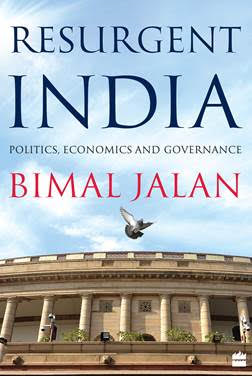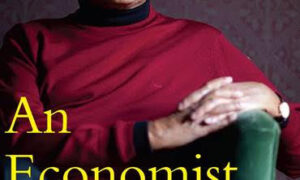
From one of the country’s foremost experts on the political economy, this book is an authoritative guide to fulfilling India’s potential.
India is now among the fastest-growing developing countries in the global economy, and if certain challenges are overcome, it has the potential to be among the top. But is it ready to grasp the opportunity?
Despite a majority government coming to power in 2014, the ordinary Indian citizen remains disenchanted with the workings of the political and bureaucratic system. This is because political parties are now subservient to their leaders, not the people. The excessive politicization of the decision-making process in government, including appointments in the civil services, autonomous bodies and public enterprises, is another reason—any decision, however injurious to the long-term future of the country, can be justi_ed on the grounds that it is the mandate of the government in power.
Add to that: corruption and red-tapism still prevalent in the bureaucracy. Dr Jalan explains how this has had an impact on India’s growth rate—if there were no legal and administrative delays, the growth rate in the past three decades could have been closer to 8 per cent rather than the current 6 to 7 per cent.
Based on extensive research and data, as well as Dr Jalan’s expertise as former Governor of the Reserve Bank of India, Finance Secretary and Chairman of the Economic Advisory Council to the Prime Minister and a nominated Member of Parliament, Resurgent India identi_es the key priorities that can—and should—be implemented in the national interest, irrespective of the government’s political agenda.
The tolerance for political corruption at high levels of government, Parliament and legislature has increased significantly in recent years. A lid has to be put on this, at least at the ministerial level. Persons who have been ‘charge-sheeted’ for criminal offences should not be permitted to function as ministers until they are cleared by the courts.
If India has the determination to realize its vast potential, its economy can become the strongest in the world in the not-too-distant future. Widespread poverty, illiteracy and disease would then largely disappear, and democracy would have given the people their just rewards.
The administrative arteries are now so clogged that nothing short of a bypass surgery would serve the purpose. What is needed is to create an altogether new system of governmental approvals where only a few cases of public importance need to be referred to various ministries for clearance.
About the author:
DR BIMAL JALAN is a former Governor of the Reserve Bank of India. He has held several positions in government. In addition to having been a nominated Member of Parliament from 2003 to 2009, he has been Chairman of the Expenditure Management Commission (2014–2016). He has also represented India on the boards of the International Monetary Fund and the World Bank.
[the_ad id=”17325″]
Dr Jalan has been associated with many academic and public institutions, including the Indian Statistical Institute, Kolkata; the Institute of Economic Growth, Delhi; the Centre for Development Studies, Thiruvananthapuram, as chairman; and the National Council of Applied Economics and Research, New Delhi, as president.
He is the author of several books on India’s economic policies, governance and polity.


















